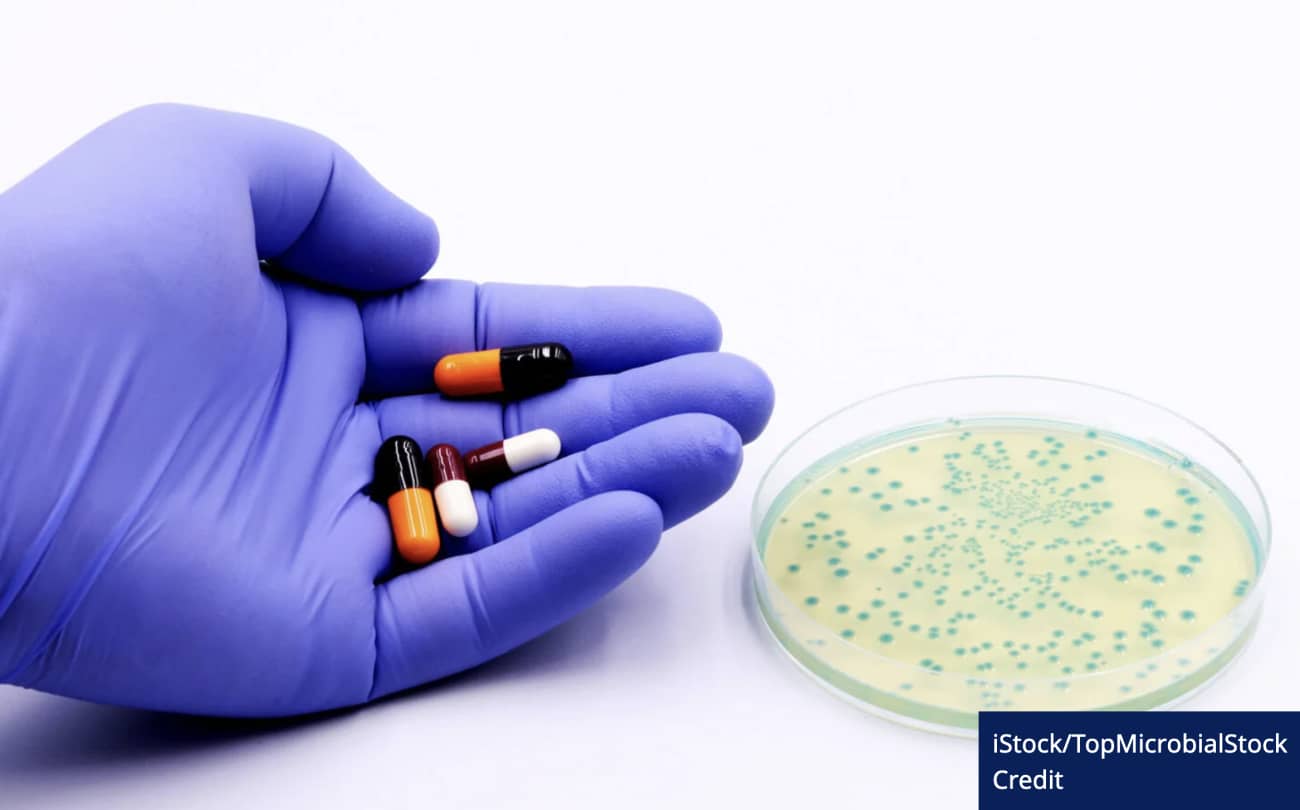
The Pan American Health Organization (PAHO) and the Global Antibiotic Research & Development Partnership (GARDP) have signed an agreement to collaborate in the response to antimicrobial resistance (AMR) in Latin America and the Caribbean. Under the agreement, the organizations aim to improve regional antibiotic R&D, manufacturing and access in the context of the emergence and spread of antibiotic-resistant infections.
According to a study recently published in The Lancet, antimicrobial resistance contributed to 322,000 deaths in Latin America and the Caribbean in 2021. That number is expected to rise to 650,000 by 2050, placing Latin America and the Caribbean among the regions with the highest AMR mortality rates across all ages.
“The latest global estimates suggest that we are at a tipping point in the AMR crisis,” said Manica Balasegaram, Executive Director, GARDP. “If we take action now, we can avert tens of millions of deaths worldwide by 2050. R&D and access must work in tandem for a sustainable antibiotic ecosystem that serves patients in Latin America and the Caribbean and beyond.”
In line with the agreement, GARDP and PAHO will focus on advancing regional access to existing and novel antimicrobials, optimizing medicines portfolios, leveraging regional structures for improved antimicrobial access, promoting regional innovation and production of antibiotics and engaging in strategic dialogues for global R&D priorities. The agreement will also facilitate access to new products to treat serious bacterial infections including sexually transmitted infections, a significant public health concern in Latin America and the Caribbean. The partnership will collaborate with existing regional initiatives, such as PAHO’s Regional Revolving Funds for pooled procurement and the PAHO Special Program, Innovation and Regional Production Platform.
“This agreement will allow PAHO to keep pursuing universal access to the medicines and technologies needed to cure drug-resistant infections while promoting regional innovation and production of antibiotics,” PAHO Director Jarbas Barbosa said. “We know communities living in vulnerable situations in Latin America and the Caribbean are hit hardest by AMR. We must ensure fair access to the best diagnostics, treatment and prevention for all,” he added.
Leading up to the signing of this agreement, PAHO and GARDP have been working together to test the susceptibility of certain carbapenem-resistant bacteria in the region. The forthcoming findings will be used to inform optimal treatment of drug-resistant infections using certain antibiotics and to help expand regional efforts to increase access to antibiotics.
This story was first published by the Pan American Health Organization (PAHO).
………………………………………………..

Global leaders have approved a political declaration at the 79th United Nations General Assembly (UNGA) High-Level Meeting on Antimicrobial Resistance (AMR), committing to a clear set of targets and actions, including reducing the estimated 4.95 million human deaths associated with bacterial antimicrobial resistance (AMR) annually by 10% by 2030. Read about it here.
Advertise with the mоѕt vіѕіtеd nеwѕ ѕіtе іn Antigua!
We offer fully customizable and flexible digital marketing packages.
Contact us at [email protected]
















Also, many Covid-19 vaccine injured Antiguans are hoping that PAHO will collaborate with the World Health Organisation under the tutelage of Tedros Adhanom Ghebreyesus to help fund their recovery from mRNA injuries such as:
Pericarditis; Myocarditis; strokes; organ damage; tinnitus; abnormal menstruation; nerve damage; palsy and compensation for the families who lost loved ones due to Sudden Adult Death Syndrome (SADS).
These mRNA trial vaccine promoters may now want to sweep all the above health issues under their “medical” carpets, but the sick, injured and especially the able-bodied will NEVER let up until the whole lot of them (including our own deceptive Health Minister Molwyn ‘AstraZeneca’ Joseph) are held to account.
TICK “PRISON” TOCK … 🕒
… and I forgot to mention the plethora of turbo cancers that’s now devastating many families as well.
Well said @Brixtonian. Molwyn Joseph is not the only one. The entire ALP cabinet of self enriches must be bundled together and hauled of to stand before a tribunal a la Nuremberg style.
Let us never let them forget the damage the have caused.
The young are dying of turbo cancers at an accelerated rate. Let us trumpet the call for them to be held to account.
Antiguans are suffering in silence,burying their dead where they can and trying to ignore the poison the took and the dark future it holds.
How do people vote for a clown who first said no one will be forced,then turn around and mandate the clot shot?
Comments are closed.